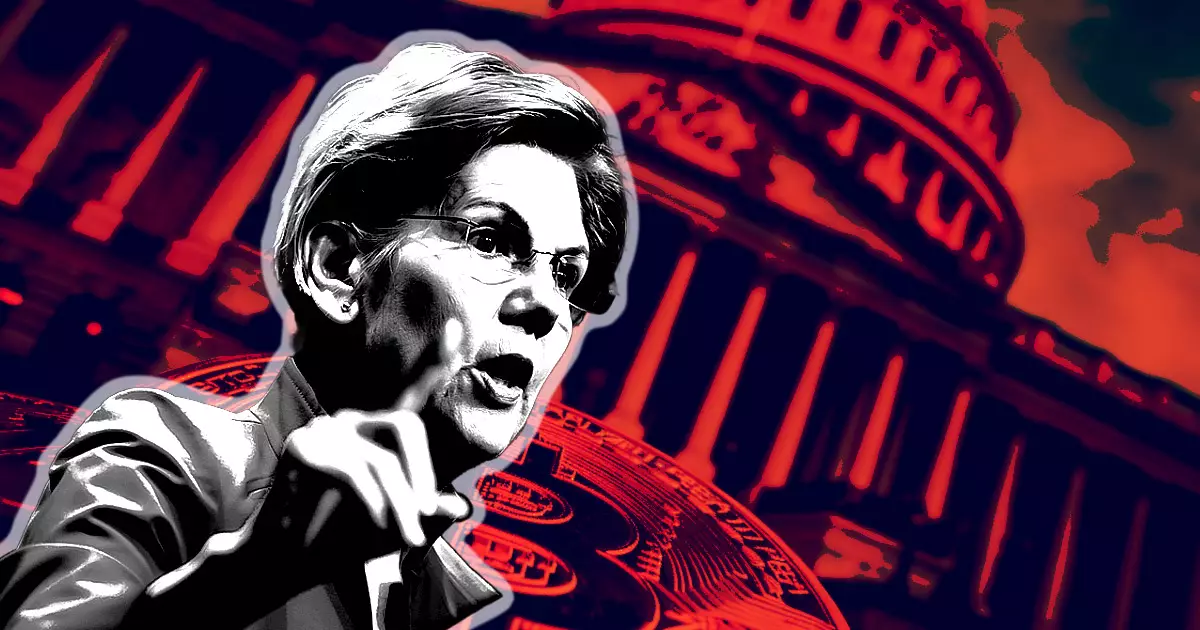Sen. Elizabeth Warren recently sparked controversy within the crypto community with her remarks criticizing the industry. In a post on X (formerly Twitter), she referenced a report from the U.S. Government Accountability Office (GAO) that highlighted the misuse of cryptocurrencies by rogue nations to evade sanctions and pose national security threats. However, many in the crypto community argue that Warren’s statements oversimplify the complexities of the industry and fail to recognize its potential positive contributions.
Last December, the GAO released a report addressing the use of cryptocurrencies, particularly Bitcoin, by foreign states subject to U.S. sanctions. The report identified instances where nations exploited cryptocurrencies to circumvent restrictions, such as economic sanctions and asset freezes. It acknowledged that the decentralized nature and public ledger system of cryptocurrencies could aid U.S. agencies in tracing illicit transactions. However, the report also highlighted the swiftness with which cryptocurrencies facilitate cross-border fund transfers, contributing to potential misuse.
Despite the nuanced insights provided by the GAO report, Sen. Warren, a vocal critic of cryptocurrencies, used it to validate her concerns about the industry’s involvement in illicit activities. However, her statements have been met with strong opposition from the crypto community.
Members of the crypto community took to X’s Community Notes feature to fact-check Sen. Warren’s statements. Paul Grewal, the Chief Legal Officer at Coinbase, dismissed the entire GAO report, criticizing it for lacking comparative analysis. He argued that buried within the report were admissions that digital assets are a poor way to circumvent sanctions. Grewal’s statement highlights the need for a more balanced evaluation of cryptocurrencies’ role in illicit activities.
Digital Chamber CEO Perianne Boring strongly opposed Sen. Warren’s claim that cryptocurrencies should be banned. Boring argues that her proposed bill is a backdoor ban on crypto and would only push technological innovation overseas, undermining national security. Boring’s response raises important questions about the potential consequences of overly restrictive regulations.
Many voices within the crypto community characterize Senator Warren as “anti-innovation” and argue that her criticisms fail to acknowledge the compliance efforts of numerous cryptocurrency companies. They emphasize that these companies are already operating within the bounds of relevant local laws, challenging the narrative of rampant non-compliance. This highlights the need for a more nuanced understanding of the industry and its participants.
Instead of vilifying the entire crypto sector, it is essential to foster meaningful dialogue between lawmakers and industry experts. To fully understand the potential of cryptocurrencies and their impact on national security, policymakers should engage with the crypto community and invite collaboration. By working together, both sides can ensure that the industry evolves in a responsible manner, addressing concerns while fostering innovation.
Sen. Elizabeth Warren’s recent criticisms of the cryptocurrency industry have faced significant backlash from the crypto community. While the GAO report highlights potential misuse of cryptocurrencies, it is crucial to avoid oversimplifying the industry and undermining its potential positive contributions. By engaging in constructive dialogue and collaboration, lawmakers and the crypto community can work together to strike a balance between regulatory oversight and technological innovation.

